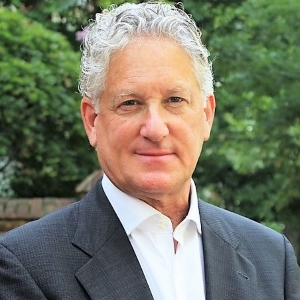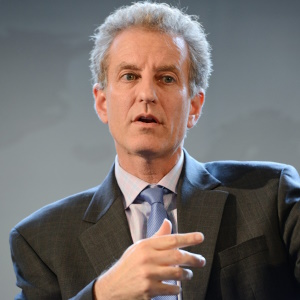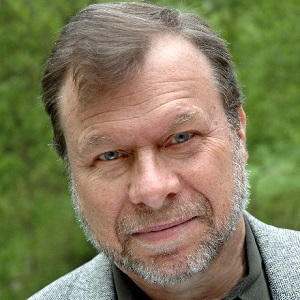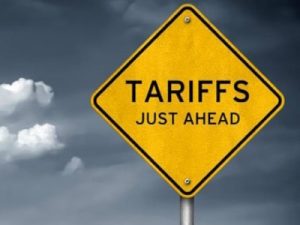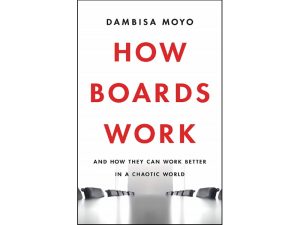Dambisa Moyo Speaker Biography
Global Economic Thought Leader; Member of the United Kingdom House of Lords; Executive: Versaca Investments; NYT Bestselling Author: Edge of Chaos
Baroness Moyo of Knightsbridge, Member of the House of Lords, is a marathon-running author and international economist who analyzes the macroeconomy and global affairs. She is a co-principal of Versaca Investments – a family office, focused on growth investing globally. She has traveled to more than 75 countries over the last decade, during which time she has developed a unique knowledge base on the political, economic, and financial workings of emerging economies, in particular the BRICs and the frontier economies in Asia, South America, Africa and the Middle East. Her work examines the interplay between rapidly developing countries, international business, and the global economy, while highlighting the key opportunities for investment.
Global Economist
Dambisa Moyo serves on the boards of 3M Corporation, Chevron, and Conde Nast, as well as, the Oxford University Endowment investment committee. She was an economist at Goldman Sachs, where she worked for nearly a decade, and was a consultant to the World Bank in Washington, D.C.
Affiliations
Dambisa was named by TIME Magazine as one of the “100 Most Influential People in the World,” and to the World Economic Forum’s Young Global Leaders Forum. She is a member of the Atlantic Council, and the Directors Council of the Museum Of Modern Art (MOMA).
Awards and Accolades
She was awarded the 2013 Hayek Lifetime Achievement Award, named for the Nobel Prize winner and recipient of the Presidential Medal of Freedom, Friedrich Hayek. Dr. Moyo has been a participant at the Bilderberg Conference and the U.S. Federal Reserve Jackson Hole Conference. In addition, she serves on the World Economic Forum’s Network of Global Agenda Councils on Global Imbalances.
Books
She is the author of the New York Times bestsellers Dead Aid: Why Aid is Not Working and How There is a Better Way for Africa, How the West Was Lost: Fifty Years of Economic Folly and the Stark Choices Ahead, and Winner Take All: China’s Race for Resources and What it Means for the World and Edge of Chaos: Why Democracy Is Failing to Deliver Economic Growth—and How to Fix It. Her latest is How Boards Work: And How They Can Work Better in a Chaotic World.
Publications
Dambisa is a contributing editor to CNBC, the business and finance news network. Her writing regularly appears in economic and finance-related publications such as the Financial Times and the Wall Street Journal.
Education
She completed a PhD in economics at Oxford University and holds a Masters degree from Harvard University. She completed an undergraduate degree in chemistry and an MBA in finance at American University in Washington, D.C.
Dambisa Moyo Speaking Topics
The Future in Macroeconomic Terms: Global Growth Outlook & Markets
Dambisa Moyo dives into the intricate dynamics of the global economy, offering an expert analysis of future growth trajectories and market trends. Drawing from her extensive experience in international economics, Dr. Moyo provides a comprehensive overview of the factors shaping global growth and market strategies driving the net wave of global prosperity.
Investment Themes in a De-Globalizing World
As the world grapples with shifting trade policies, Dr. Dambisa Moyo explores the critical investment themes emerging in a de-globalizing landscape. This keynote addresses how Dr. Moyo’s deep understanding of global markets and economic policy equips her audience with the knowledge to navigate and capitalize on the evolving investment climate.
Age of Technology: A Tale of Innovation, Opportunities and Risk
At a time of rapid technological advancements and innovation, the risks and opportunities are immense, and the responses from corporations and public policy are crucial to economic growth. On the one hand, technological shifts hold promise to transform livelihoods by enhancing the efficiency and ease of information transfer, connectivity and communication. Yet, there remain legitimate concerns on the net effects of technological advances—particularly in respect to whether and how automation will disrupt and erode (low skilled) jobs—the hallmark of emerging markets. For every gadget that enables us to process data and information faster and more cheaply, there is a burgeoning social and public policy challenge of rising unemployment that has dire consequences for growth and could engender significant costs for society by reducing employment. Technological advances present a rapidly growing social and public policy challenge for every country, across all sectors.
Policy, Business, and Democracy
In this thought-provoking presentation, Dr. Dambisa Moyo examines the complex interplay between policy, business, and democracy in today’s fast-changing world. Discussing how businesses can thrive while upholding democratic values and navigating regulatory challenges, Dr. Moyo offers a roadmap for leaders seeking to balance profit and purpose in a landscape marked by political and economic uncertainty.
Handling Crisis as a Business Leader
As a board member of many international organizations, Dr. Dambisa Moyo often leads businesses through moments of turbulence. In this informative presentation, Dr. Moyo offers ten questions for business leaders to ask themselves and their teams in a moment of crisis.
Five Lessons for Women
Esteemed economist Dr. Dambisa Moyo shares five lessons for women in business, learnings from her own successes and failures. In this engaging, authentic conversation, Dr. Moyo uses her own story as a jumping-off point for her perspective on climbing the corporate ladder.
Dambisa Moyo Books
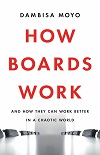
How Boards Work: And How They Can Work Better in a Chaotic World
Purchase Book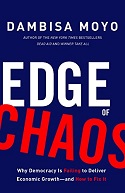
Edge of Chaos: Why Democracy Is Failing to Deliver Economic Growth—and How to Fix It
Purchase Book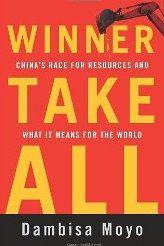
Winner Take All: China’s Race for Resources and What It Means for the World
Purchase Book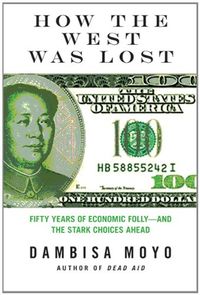
How the West Was Lost: Fifty Years of Economic Folly–and the Stark Choices Ahead
Purchase Book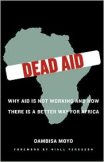
Dead Aid: Why Aid Is Not Working and How There Is Another Way for Africa
Purchase BookDambisa Moyo Videos
Dambisa Moyo Articles
Dambisa Moyo Speaker Testimonials
Dr. Moyo's presentation was one of the best I have seen. The information she offered was timely and fact-filled. Her presentation encompassed so many important areas that will affect the financial plans of families and generations to come.
- | 2017 Investment Advisor Forum
Dr. Moyo's session was in the top 5 highest ranking sessions of the conference. Here's some of the feedback: 'Dambisa was excellent, great selection for the event.' 'Clear deliver from Dambisa, providing relevant specific factors.'
- | Crowd Comments from AdExchangers Event
"'Enjoyed that she brought up thinking points and context that I had not yet considered. Great energy and emanated caring.' 'Very knowledgeable, professional yet personable, clear, concise, gave appropriate examples, and charismatic. Enjoyed.' 'So clear, and ideas that can be put to work.'"
- | Crowd Comments from IVY Event


